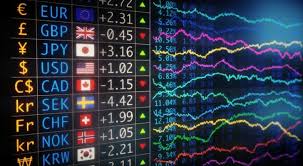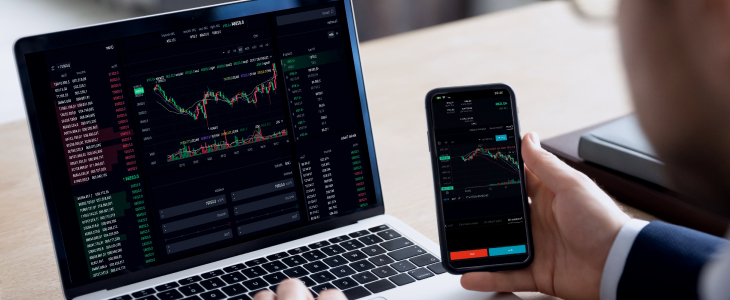
The forex trading industry is vast and dynamic, offering numerous job opportunities that cater to a variety of skill sets and experiences. Whether you are a newcomer hoping to break into the field or an experienced trader looking to advance your career, forex trading jobs trading-asia.com can be an excellent resource for learning more about forex facets. In this article, we will explore various types of forex trading jobs, the skills required, potential career paths, and tips on how to successfully enter and thrive in this exciting sector.
Understanding Forex Trading Jobs
Forex trading jobs encompass a wide array of roles, from brokers and analysts to portfolio managers and compliance officers. These positions can be divided into two main categories: trading jobs and support jobs. Trading jobs typically involve executing trades, whereas support jobs include research, compliance, and management.
Types of Forex Trading Jobs
1. Forex Trader
A forex trader actively buys and sells currencies on behalf of themselves or their clients. Traders can work for financial institutions, hedge funds, or trade independently. They need strong analytical skills, a good understanding of market trends, and the ability to make quick decisions based on market movements.
2. Forex Analyst
Forex analysts conduct market research and provide insights and forecasts about currency movements. They analyze historical data, monitor economic indicators, and represent their findings to traders and clients. Strong analytical and statistic skills are essential for this role.
3. Forex Broker
Forex brokers serve as intermediaries between buyers and sellers in the forex market. They are crucial in facilitating trades and can work independently or for brokerage firms. Brokers must be knowledgeable about various trading platforms, have excellent communication skills, and be able to provide valuable advice to their clients.
4. Portfolio Manager
Portfolio managers manage investment portfolios for clients, seeking to maximize returns while minimizing risks. They analyze currency pairs and market conditions to make informed decisions about asset allocations. This role typically requires advanced financial knowledge and experience.
5. Risk Manager

Risk managers oversee and identify potential risks within forex trading activities. They develop strategies to minimize these risks, ensuring that the trading process remains safe and compliant with regulations. This job requires strong analytical skills and an understanding of risk management tactics.
6. Compliance Officer
Compliance officers ensure that forex trading operations adhere to legal and regulatory requirements. They monitor trading activities, identify potential issues, and implement policies to maintain compliance. Attention to detail and a solid understanding of regulatory frameworks are crucial for this role.
Skills Needed for Forex Trading Jobs
To succeed in any of these forex trading jobs, there are several critical skills you must possess:
- Analytical Skills: The ability to analyze data, identify trends, and make decisions swiftly is crucial in forex trading.
- Attention to Detail: Precision is paramount in trading. Small errors can lead to significant financial losses.
- Technical Proficiency: Familiarity with trading platforms and financial software is essential for executing and managing trades.
- Strong Communication: Whether you are advising clients or collaborating with colleagues, effective communication is key.
- Risk Management: Understanding and managing risks effectively will help ensure long-term success in trading.
Educational Pathways
While some forex trading jobs may not require formal education, having a degree in finance, economics, or business can give you a competitive edge. Additionally, various certifications, such as the Chartered Financial Analyst (CFA) or Financial Risk Manager (FRM), can enhance your qualifications and marketability. Many traders also benefit from attending workshops, webinars, and online courses to stay updated on market trends and trading strategies.
How to Get Started in Forex Trading
Breaking into the forex trading job market can be challenging, but the following steps can help you on your journey:
- Educate Yourself: Start by gaining a solid understanding of forex markets, trading strategies, and technical analysis.
- Gain Experience: Consider internships or entry-level positions in financial institutions, trading firms, or brokerage houses to gain hands-on experience.
- Network: Connect with industry professionals through networking events, online forums, and social media platforms such as LinkedIn. Building a solid professional network can open doors for job opportunities.
- Stay Informed: Follow news and trends in the forex market to enhance your knowledge and awareness of current events that may impact currency trading.
- Seek Mentorship: Find a mentor in the forex trading world who can provide guidance and insights as you navigate your career path.
Conclusion
The forex trading industry presents a wealth of opportunities for individuals with diverse skills and backgrounds. Whether you aspire to be a trader, analyst, or manager, understanding the different job roles and honing the necessary skills is vital to your success. By investing time in education, gaining practical experience, and building a network of contacts, you can position yourself for a rewarding career in forex trading. As with any career, dedication and continuous improvement will be your best allies in this fast-paced and ever-evolving industry.
